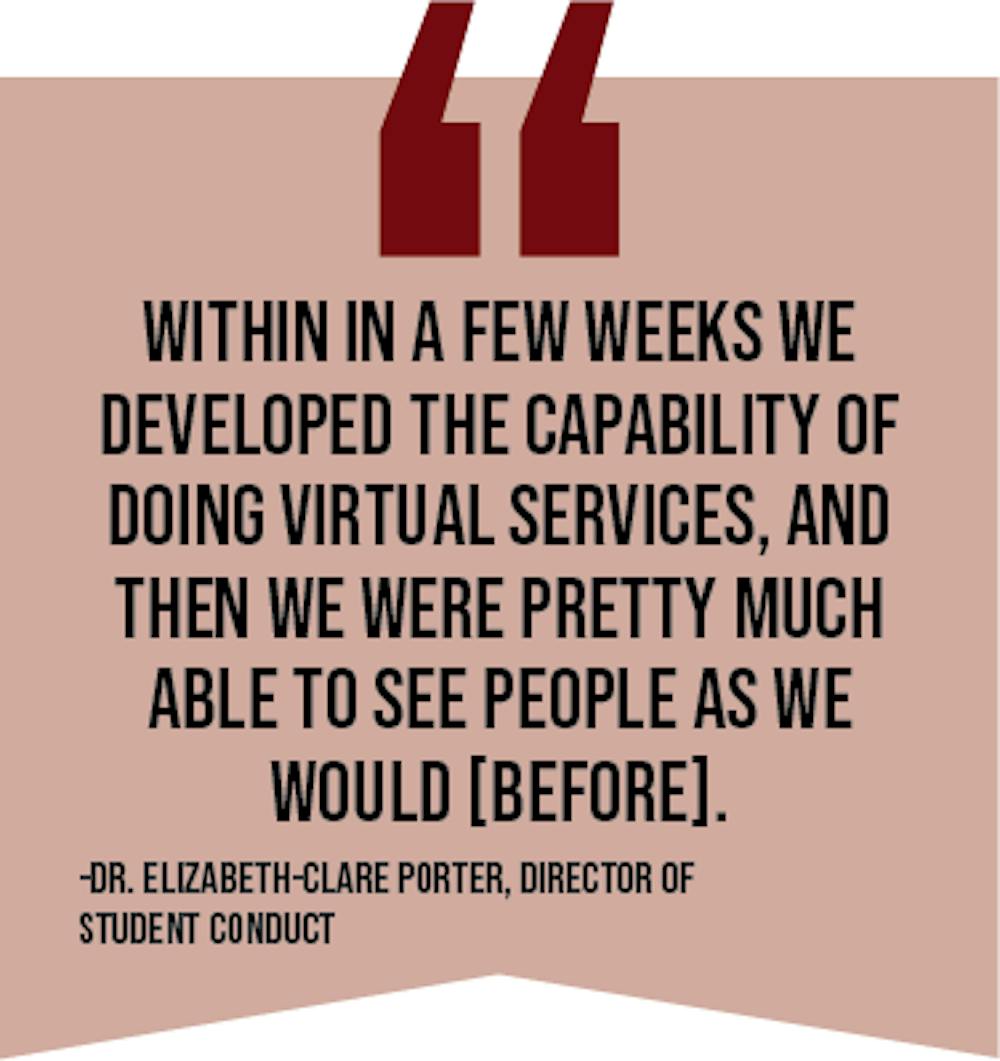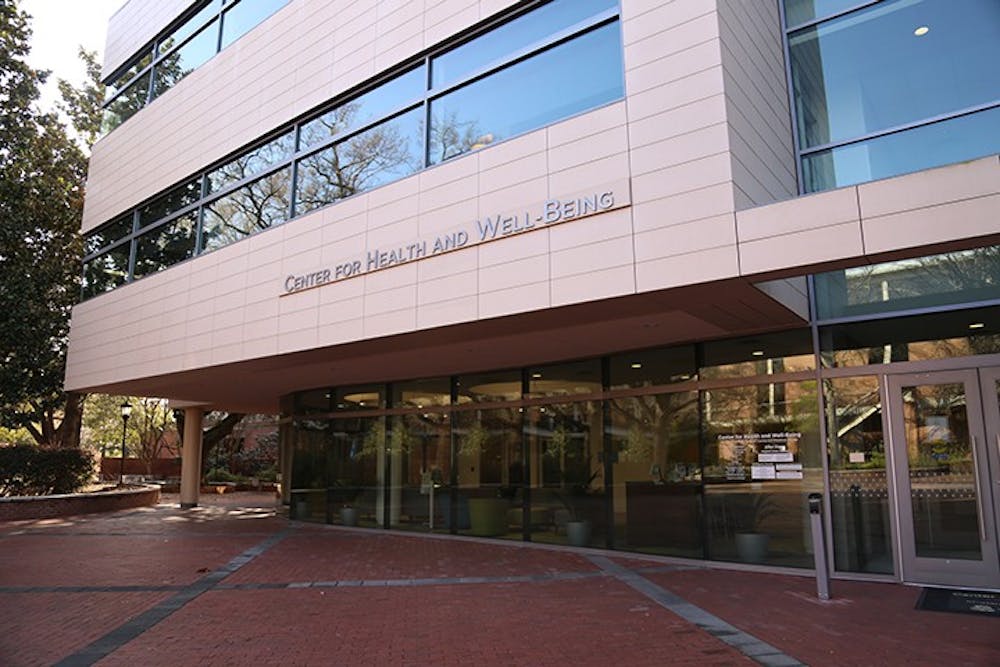USC's counseling and psychiatry services underwent significant changes during the pandemic — the price of counseling became more affordable for students, and counseling and psychiatry shifted to being conducted primarily online.
The price of counseling and psychiatry historically depended on whether a student paid the student health fee. Counseling and psychiatry services for part-time students who haven't paid the fee were higher.
For all full-time students at USC, the student health fee is included in tuition, and costs $190 per semester. The student health fee covers a number of expenses, including primary care office visits, women's health office visits, sexual health consultations and even 10 free counseling sessions for mental health.
The price of counseling dropped significantly since the start of the pandemic. In 2019, counseling ranged from $62-105 per session for students that paid the student health fee and used up all 10 free sessions. This semester however, the price of counseling is $10 per session for students who have paid the fee and already used their 10 free sessions.
For psychiatry, on the other hand, the prices have increased slightly. In 2019, the price of psychiatry intakes and follow-ups ranged from $20-30 whereas this semester psychiatry intakes are $60 and $40 for follow-ups.
Deborah Beck, chief health officer and associate vice president for health and well-being, noted that even though the price of psychiatry has increased, it's still much cheaper at USC than it is in the community.
"That probably in the community is $400 plus, and ours right now is $60," Beck said.
Additionally, USC decided to make some changes to its summer fees for counseling and psychiatry. Historically, students who are taking classes during the summer and paying the health fee have paid cheaper prices for counseling than students who aren't enrolled in classes.
Last summer, due to the pandemic, USC applied a $10 flat fee per session for every student seeking counseling regardless of whether they paid the health fee.
This summer, students enrolled in classes who pay the fee will receive 10 free sessions and then be charged $10 for additional sessions. For students who aren't enrolled in classes and haven't paid the fee, every session is $15 this summer.
Dr. Elizabeth-Clare Porter, interim director of counseling and psychiatry, recounted how hectic things were in her department when the campus shut down last March.
"At that point, we knew we couldn't keep doing the appointments that we had in person, but we didn't have any way to see people virtually at that time," Porter said. "So for the next few weeks, I mean, we kept track of everybody who had an appointment, everybody was calling every student individually to like make sure that they had their medications, see where they were, see if we could help them, you know, touch base with a psychiatrist in their area."
Porter said that the university quickly mobilized to create a way for counseling to be conducted virtually.

"Within in a few weeks we developed the capability of doing virtual services, and then we were pretty much able to see people as we would [before]," Porter said.
This shift to tele-counseling and teletherapy shows that the university has adapted its approach to mental health. This semester, 75% of counseling is conducted virtually while only 25% is conducted in person, according to Beck.
Aside from being able to conduct individual counseling virtually, the department of counseling and psychiatry also figured out how to virtually conduct group sessions last semester as well, and since then, all of the in-person services are now available virtually.
Artem Arefyev, a higher education and student affairs graduate student, said that he found his tele-counseling appointment helpful. However, he said it was frustrating how long it took to be able to speak to someone.
"While the actual meeting was helpful, I feel like — maybe a little frustrating in a sense of just how long it took from initial, 'I want to talk to someone,' to having a — like a consultation appointment, then actually speaking with a professional," Arefyev said.
Mathis Kreuzburg, a first-year exercise science student, didn't find USC tele-counseling services useful at all.
"I feel like really developing a connection in-person with a therapist is really important, and you can't do that through a computer screen," Kreuzburg said. "You can't even connect with teachers through a computer screen about, you know, what you're learning, so how are you supposed to connect with someone about yourself?"
Porter said that there are pros and cons to tele-counseling, but one of the big positives is that it provides convenience for students.
"A lot of the students like not having to come to park at the Bull Street Garage, or having to be in any specific place," Porter said. "So I think it's mixed, depending on kind of what the preference of the person is, but I think that we've been able to successfully give people mental health care in the ways that they needed it."

